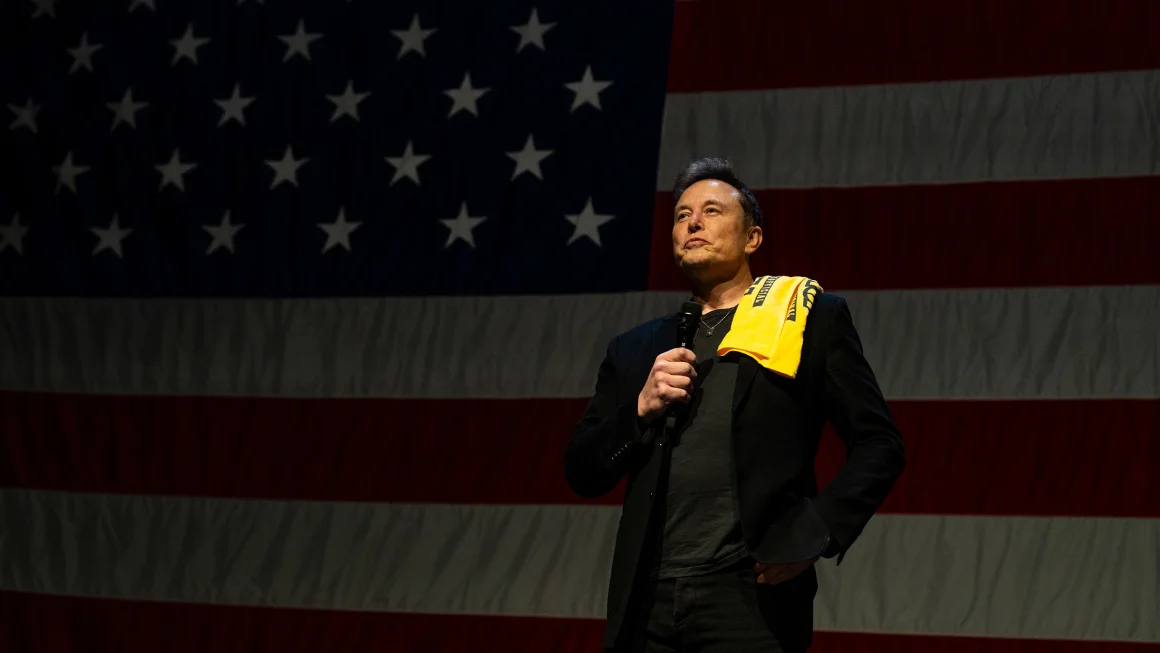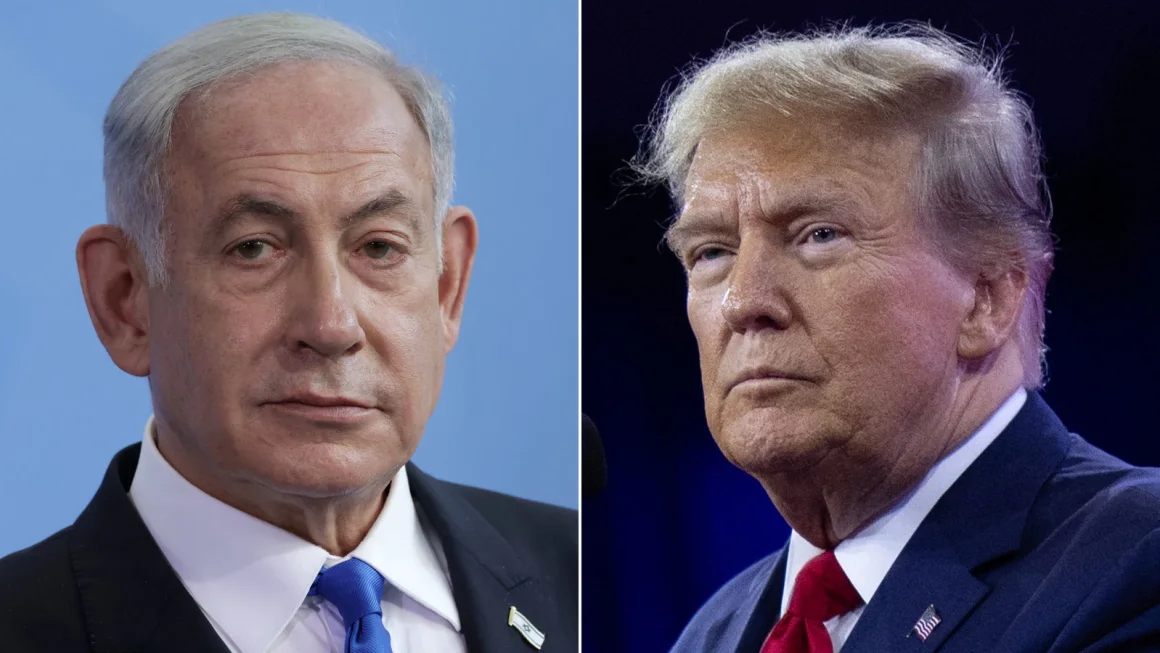Over the past three years, Elon Musk has met dozens of times with presidents, prime ministers, lawmakers, government officials and political candidates from around the world.
Some of these meetings have been highly publicized, like his visit to Israel with Prime Minister Benjamin Netanyahu following criticism over an antisemitic post Musk boosted on X. Other meetings, such as a recent conversation with Argentine President Javier Milei, the world only glimpses through the billionaire’s social media posts.
Known topics of conversation ranged from business opportunities for Musk’s companies to elections and policy issues such as trade, energy, education and population management, according to a CNN review of Musk’s meetings, calls and conversations with political figures around the world since August 2021. Although some of his relationships with those leaders go back even further, in that time, Musk has gone from being one of the world’s wealthiest and most influential businessmen to an increasingly powerful player in global affairs.
Taken together, the meetings show how Musk has been courted not only for his companies and deep pocketbook but also for his ability to impact the course of wars through his Starlink satellite service; his opinion on artificial intelligence, the next major wave of technology development; and his role in swaying public opinion through his platform, X.
On Friday, the Wall Street Journal reported that Musk has been in regular contact with Russian President Vladimir Putin and other Russian government officials, including about Starlink, since late 2022. CNN has not independently confirmed the conversations, so they are not included in our analysis. Kremlin spokesman Dmitry Peskov told CNN the report was “absolutely false.” He said Musk and Putin have only ever spoken once, adding that the conversation was over the phone and took place before 2022. Musk’s lawyer did not respond to a request for comment.
For Musk, conversations with world leaders are a virtuous cycle: The six prominent companies he owns or runs give him an in with those figures, whose support often fuels their growth. In turn, those leaders’ interest in attracting Musk’s business provides an opportunity for him to advise on some of his other pet interests, such as global birth rates and immigration.
At the same time, the South Africa-born billionaire has become a political power player in his adopted home, the United States. He held livestream campaign events on X for presidential hopefuls Florida Gov. Ron DeSantis and Robert F. Kennedy, Jr., who both later dropped out of the race, as well as former President Donald Trump. Musk has since thrown his weight — and tens of millions of dollars — behind Trump, attending and hosting rallies on his behalf and criticizing (and, in some cases, spreading false information about) his competitor, Vice President Kamala Harris, on X.
“He’s trying to be a global influencer, and I guess he’s decided he needs to do more than use X,” said James Lewis, director of the strategic technologies program at the Center for Strategic and International Studies.
Of course, it’s not unusual for corporate leaders to sometimes meet with government officials, and Musk is not the only big business name to publicly weigh in on the upcoming US presidential election.
But the extent of Musk’s public political involvement is unusual for the chief executive of a public company like Tesla — as well as the owner of several powerful private firms, executive leadership experts told CNN.
“What’s different about it is that there’s a political aspect, and most CEOs steer clear of politics,” Lewis said. “They’re going to the head of another state, basically, to make the commercial conditions better for their product, maybe to lobby on a certain point, but they don’t usually do politics,” he said, adding that with Musk, “there’s a political tone to everything he does.”
At least some of Musk’s political relationships appear to have benefited his companies. In May 2022, Musk met with the then-President of Brazil, Jair Bolsonaro, to mark the launch of Starlink in the country, a major new market for the satellite business. In February 2023, he held calls with then-Mexican President Andrés Manuel López Obrador about a new Tesla manufacturing plant in the state of Nuevo Leon, for which the company later received $153 million worth of incentives from the state. In May 2023, he held meetings with Chinese government officials shortly after Tesla announced plans for a new battery plant in Shanghai; Musk made a surprise return to China this April for a visit with Premier Li Qiang, weeks before the company broke ground on the facility.
Even more world leaders, including French President Emmanuel Macron, Turkish President Recep Tayyip Erdogan and Indian Prime Minister Narendra Modi, have met with Musk to ask Tesla to invest in their countries.
CNN’s analysis includes only meetings for which at least some information is publicly available. It’s possible the billionaire has calls or meetings with leaders that he does not post about.
“One might say he doesn’t have to pay lobbyists, because he’s his own lobbyist, globally,” said William Klepper, a professor of management at Columbia Business School who focuses on executive leadership. But, he added, “when you’ve got other people’s money at stake, you have to moderate your activities … when you get into these extremes, you can impact your business.”
Musk has not hesitated to deal in extremes. He’s warned of the downfall of America if Democrats are elected, pushed false conspiracy theories on topics such as mail-in voting and warned in public events of a “woke mind virus” that threatens society’s advancements.
Separately, Musk has also taken heat for boosting an antisemitic conspiracy theory, racist false claims about immigration and the dangerous ‘Pizzagate’ conspiracy, as well as posting a Holocaust joke on X.
Recently, Musk’s political activism has begun to have a tangible impact on his companies: Brands pulled their advertisements from X, tanking its value. And SpaceX earlier this month sued a California regulator after it allegedly denied a bid to allow more rocket launches over the billionaire’s controversial comments, claiming it had violated Musk’s freedom of speech. (The agency did not comment on the suit.)
CNN’s analysis also suggests that Musk has, in particular, worked to develop influence among a set of right-leaning world leaders, including Modi, Bolsonaro, Milei and Italian Prime Minister Giorgia Meloni.
“He’s probably more comfortable with them … these are people who want to meet with him, and not everyone wants to meet with Elon Musk,” Lewis said. “It’s birds of a feather. He likes visiting people who are going to be pleased to be receiving Elon Musk.”
During a conference for Italy’s far-right Brothers of Italy party last year, Musk railed against “illegal immigration” and the “woke mind virus” that he said was gripping the US. Musk called it “evil” and warned of it moving to Italy.
India’s Modi, who was recently reelected for a rare third consecutive term, used his plans for electric vehicle manufacturing growth — including conversations with Musk about a potential Tesla factory — as a campaign talking point, although a meeting in India between the two men earlier this year where Musk was expected to announce the facility was rescheduled.
Musk has also met with Milei multiple times in his first year leading Argentina, during which time the president has faced protests over a huge spike in poverty rates as a result of austerity measures. “I recommend investing in Argentina,” Musk said in an X post following a May meeting between the pair. In another post last month, Musk said, “Milei is bringing prosperity to Argentina.” (Argentina is home to huge stores of lithium, an essential component in batteries like the ones used in Tesla’s cars.)
Now, as he campaigns for Trump, Musk may be setting himself up for his most prominent political role yet: a position in a possible future Trump White House. Musk and Trump have publicly discussed having the billionaire lead a new government efficiency commission — which Musk has jokingly referred to as the Department of Government Efficiency, or DOGE, the name of Musk’s favorite meme and cryptocurrency — if the former president is reelected.
Methodology: CNN’s analysis is based on information compiled from news reports, X posts and press releases. It is possible other meetings exist, or other topics were discussed beyond what is publicly available. The position titles are as of the time of the meeting.




